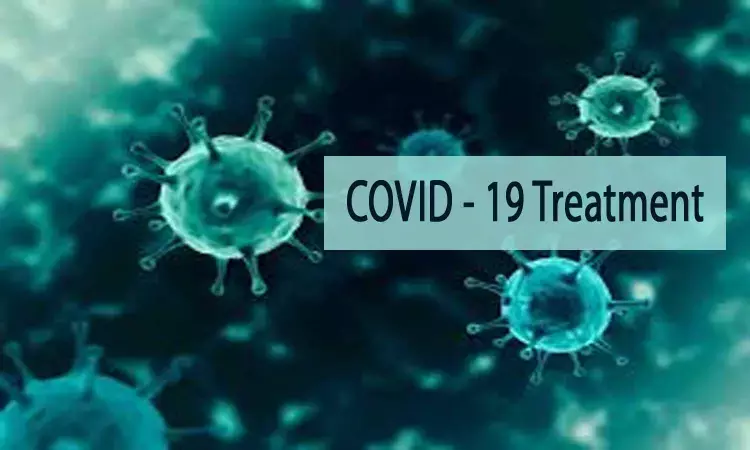- Home
- Medical news & Guidelines
- Anesthesiology
- Cardiology and CTVS
- Critical Care
- Dentistry
- Dermatology
- Diabetes and Endocrinology
- ENT
- Gastroenterology
- Medicine
- Nephrology
- Neurology
- Obstretics-Gynaecology
- Oncology
- Ophthalmology
- Orthopaedics
- Pediatrics-Neonatology
- Psychiatry
- Pulmonology
- Radiology
- Surgery
- Urology
- Laboratory Medicine
- Diet
- Nursing
- Paramedical
- Physiotherapy
- Health news
- Fact Check
- Bone Health Fact Check
- Brain Health Fact Check
- Cancer Related Fact Check
- Child Care Fact Check
- Dental and oral health fact check
- Diabetes and metabolic health fact check
- Diet and Nutrition Fact Check
- Eye and ENT Care Fact Check
- Fitness fact check
- Gut health fact check
- Heart health fact check
- Kidney health fact check
- Medical education fact check
- Men's health fact check
- Respiratory fact check
- Skin and hair care fact check
- Vaccine and Immunization fact check
- Women's health fact check
- AYUSH
- State News
- Andaman and Nicobar Islands
- Andhra Pradesh
- Arunachal Pradesh
- Assam
- Bihar
- Chandigarh
- Chattisgarh
- Dadra and Nagar Haveli
- Daman and Diu
- Delhi
- Goa
- Gujarat
- Haryana
- Himachal Pradesh
- Jammu & Kashmir
- Jharkhand
- Karnataka
- Kerala
- Ladakh
- Lakshadweep
- Madhya Pradesh
- Maharashtra
- Manipur
- Meghalaya
- Mizoram
- Nagaland
- Odisha
- Puducherry
- Punjab
- Rajasthan
- Sikkim
- Tamil Nadu
- Telangana
- Tripura
- Uttar Pradesh
- Uttrakhand
- West Bengal
- Medical Education
- Industry
Acalabrutinib - New option to calm cytokine storm in severe Covid 19

As the Covid 19 pandemic is progressing new and new drugs are being tried to contain the severity of the disease.
Dr Mark Roschewski and colleagues have found that acalabrutinib may help calm cytokine storm in severe COVID-19 patients.
The drug acalabrutinib is FDA-approved treatment for several types of B cell cancers.
The drug improved the oxygenation levels and decreased molecular markers of inflammation in a majority of 19 patients hospitalized for the treatment of severe COVID-19. The study has been published in the journal Science Immunology.
A hyperactive immune response isn't unique to COVID-19. People with autoimmune diseases and cancer patients receiving immunotherapy can experience similar symptoms. These responses are referred to as macrophage activation syndrome, cytokine release syndrome -- or simply "cytokine storms."
Acalabrutinib was administered to 11 patients on supplemental oxygen and 8 patients on mechanical ventilation over a 10-to-14-day course of treatment.
At the end of treatment, 8 of 11 patients on supplemental oxygen were breathing room air, and 4 of 8 patients on ventilation were extubated, with 2 of the 8 breathing room air. Measurements of two proteins related to inflammation decreased in the majority of patients, with no signs of toxicity from the drug.
The study is not a clinical trial, but rather an off-label observational study to see if acalabrutinib could help dampen the massive immune response - sometimes called a "cytokine storm" - that is associated with the most severe cases of COVID-19.
Acalabrutinib inhibits the Bruton tyrosine kinase (BTK) protein, which aids immune cells called macrophages in activating a variety of other proteins in the body's innate immune response. Patients with severe COVID-19 have a hyperinflammatory immune response that appears to be driven by macrophage activation, leading to acute respiratory distress syndrome (ARDS) and often death.
Roschewski et al. also studied BTK activation and immune markers in whole blood from 4 COVID-19 patients and 5 healthy individuals. BTK activation levels and the presence of the inflammatory protein IL-6 were higher in the COVID-19 patients, further suggesting that BTK may play a critical role in the disease's progression.
An international prospective randomized controlled clinical trial is now underway to confirm the safety and efficacy of this BTK inhibitor as a therapeutic strategy against COVID-19, the authors note.
For further reference log on to :
Dr Kamal Kant Kohli-MBBS, DTCD- a chest specialist with more than 30 years of practice and a flair for writing clinical articles, Dr Kamal Kant Kohli joined Medical Dialogues as a Chief Editor of Medical News. Besides writing articles, as an editor, he proofreads and verifies all the medical content published on Medical Dialogues including those coming from journals, studies,medical conferences,guidelines etc. Email: drkohli@medicaldialogues.in. Contact no. 011-43720751


